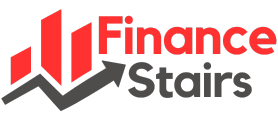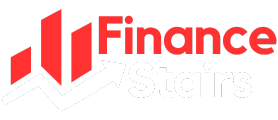Purchasing a house is a big commitment, so protecting it with the appropriate insurance is crucial. Financial protection against a variety of hazards, such as theft and natural catastrophes, is offered by homeowners insurance. Nevertheless, selecting the appropriate coverage requires a thorough understanding of the particular needs of your home. This comprehensive guide explores the complexities of homeowner insurance, covering topics such as different coverage options, factors that affect premiums, common misconceptions, and strategies to maximize protection.
Significant revelations discovered
- Customize home insurance to your house’s specific requirements, taking into account extra living expenses, liabilities, and personal property
- Understand the factors that influence rates, including choices for replacement costs, adjustments to the deductible, security measures, and effects on credit score.
- Dispel myths regarding the need for separate flood insurance and the distinction between replacement cost and market value.
- Prioritize disaster preparedness above all else to potentially reduce premiums; regularly review policies; and bundle coverage to reduce expenses.
- With confidence, navigate the intricacies of homeowner’s insurance, ensuring that complete coverage corresponds with your assets and financial situation.
Understanding Homeowners Insurance: The Foundation for Protection
Fundamentals of Insurance
The structure of your home, your personal belongings, liability for accidents that happen on your land, and additional living expenses in the event that your home becomes uninhabitable are typically covered by homeowners insurance.
Coverage Types
The main components of homeowners insurance are extra living costs coverage, liability protection, dwelling coverage, and personal property coverage. It is essential to personalize these elements to match coverage to the unique requirements of your house.
Tailoring Insurance to the Requirements of Your Property
Assessing a Property’s Worth
The first step is to determine the precise value of your property. Acquiring knowledge of the house’s replacement cost guarantees that your home insurance sufficiently safeguards your investment.
Personal Belongings Inventory
The right amount of personal property coverage may be chosen with the aid of a thorough inventory of one’s possessions. Think about expensive products that could need more endorsements.
Evaluating Liability Risks
Protection against liability is essential. Evaluate possible hazards on your property, such as dogs or swimming pools, and modify liability coverage to protect against suits.
Geographic Considerations
The location of your property affects your insurance requirements. Homes in high-risk zones for natural catastrophes could need more insurance. Comprehending regional hazards is essential to customizing a thorough insurance plan.
Factors Influencing Premiums: Navigating Cost Considerations
Replacement Cost vs. Actual Cash Value
Selecting replacement cost coverage guarantees that your insurance will pay the full cost of reconstructing your house, even if it may result in higher rates. Decrement is taken into account in actual cash value, which might result in a smaller dividend.
Deductibles and Premiums
Premiums may change if deductibles are changed. Lower premiums are usually associated with higher deductibles, but it’s crucial to choose a deductible that will allow you to feel comfortable enough financially to file a claim.
Home Security Measures
If you install smoke detectors, security systems, and other safety measures, you could be able to get premium savings. Improving the security of your house may save you money in addition to giving you peace of mind.
Credit Score Impact
The cost of homeowners insurance may vary depending on your credit score. Sustaining magnificent credit shows fiscal reasonability and might prompt less expensive insurance premiums.
Common Misconceptions: Dispelling Homeowners Insurance Myths
Market Value vs. Replacement Cost
It is critical to recollect that substitution cost, not market value, is the reason for home insurance. The land is remembered for market value, however, the expense of modifying the design is the fundamental focal point of substitution cost.
Flood Insurance Necessity
A typical confusion among property holders is that flood harm is covered by standard insurance. Separate flood insurance is often essential, especially for homes situated in high-risk areas.
Coverage for High-Value Items
Collectibles, craftsmanship, and adornments are instances of resources that can require additional coverage. It is standard to expect that normal individual property coverage will be enough for significant articles.
Optimizing Protection: Strategies for Comprehensive Coverage
Regular Policy Reviews
When it’s about insurance for homeowners, requirements may be impacted by changes in lifestyle, house upgrades, and property values. Reviewing your insurance regularly guarantees that the coverage is still appropriate for your assets and financial circumstances.
Bundling Policies
Discounts may be available if you combine your home insurance with additional plans, such as vehicle insurance. Cost decreases are some of the time accomplished by consolidating coverage under one supplier.
Disaster Preparedness
Proactively safeguarding your home with calamity readiness and building reinforcement decreases dangers and shows backup plans that you are responsible for, which might well affect charges.
Conclusion
Insurance for homeowners is an essential safeguard for your house, but the specifics determine how successful it is. An in-depth evaluation of your property’s worth, risk factors, and lifestyle choices is necessary to customize coverage. Knowing the factors that influence rates enables you to pick shrewdly without forfeiting insurance. Clearing up frequent misunderstandings and putting optimization tactics into practice further guarantees that homeowners’ insurance is a customized and all-inclusive protection for your home investment rather than simply a required cost. Through a thorough understanding of coverage alternatives and well-informed decision-making, you can confidently and resiliently protect your property.
Frequently Asked Questions
1. What does homeowners insurance typically cover?
The structure of your house, your items, responsibility for accidents sustained on your property, and extra living costs if your home becomes uninhabitable are all often covered by homeowners insurance.
2. How are homeowners insurance premiums determined?
The replacement cost you choose, changes to your deductible, home security systems, and even your credit score can have an impact on your premiums. Making economic decisions is aided by having an understanding of these variables.
3. Is flood damage covered in a standard homeowners policy?
No, flood damage is often not covered by basic plans. To provide complete protection, it is essential to have separate flood insurance, particularly for homes situated in regions susceptible to flooding.
4. What are some optimization strategies for homeowners insurance?
In addition to improving protection, regular policy reviews, combining coverage with other policies for possible reductions, and placing a high priority on disaster preparation may also result in cost savings and other advantages.
5. How often should I review my homeowners’ insurance policy?
It is recommended to do regular evaluations, particularly when changes are made to the house, property prices fluctuate, or lifestyle considerations alter. Up-to-date coverage is ensured by keeping your insurance in line with your finances and property.
References
https://www.domain.com.au/advice/tailor-home-insurance-policy-1240/
https://money.com/what-is-homeowners-insurance/


